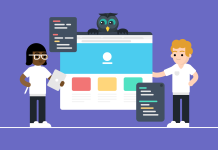Resume Format For Freshers: What to Include in Additional Important Sections
When creating a fresher resume, it’s essential to go beyond the basic sections like education and skills. The additional important sections can make a huge difference in showcasing your personality, expertise, and potential to employers. These sections may include certifications and courses, which highlight industry-relevant knowledge; internships and projects, which demonstrate hands-on experience; extracurricular activities and achievements, which show leadership and teamwork; and hobbies and interests, which add a personal touch. Including well-structured additional sections in your fresher resume format can make your application stand out and increase your chances of landing your first job.
A) Hobbies & Interests
Want to add some spice to your resume? The hobbies and interests section, while not a game-changer, can help show who YOU are as an individual. Who knows, maybe you and your interviewee have some hobbies in common.
If you end up with some extra space in your resume, don’t hesitate to show off your personality with a hobbies/interests section.
B) Volunteer work
If you’re the type of person to use your free time helping others, while expecting nothing in return, chances are that you’re the type of employee who’s in it for more than just the money. It leaves the impression that you’re a devoted, loyal employee.
Volunteering boosts employability, studies find. For most job seekers, listing any volunteer experience as one of your additional CV sections is a great way to show your commitment and values. It also lets them know that you don’t only care about the money. For entry-level or first-time applicants who have no experience, volunteer work makes an excellent stand-in.
C) Language
Listing language skills on a resume only extends your usefulness as an employee, particularly in international corporations or localities where there is a large population speaking that second language.
To list languages in your resume, simply write them down and assign them the appropriate level:
- Native
- Fluent
- Proficient (Enough knowledge to pass by in a professional environment)
- Intermediate
- Basic
As a given, you should never lie about your language skills. You never know, your interviewer might turn out to be fluent in the language, or even be a native speaker!
D) Certifications & Awards
Do you have any awards that make you stand out in your field? How about certifications from industry experts?
If they are relevant to the job and industry, include them!
Whichever the case is, as long as it’s relevant for the position you’re applying for, feel free to add it to your resume.
E) Publications
If you have any published works (online, or in an academic journal), you might want to include them in your resume. Make sure to include a URL, so the HR knows where to check your work!If your published material isn’t online, create a short bibliography of the works you’d like them to acknowledge.
F) Projects
Working on side projects can really show off your passion for your field. Whether they’re university class projects or part-time entrepreneurial endeavors, they’re both equally relevant. If your list of publications or projects is too long to go on a resume, consider building an online portfolio to document everything. Link to it from the contact section, in this case. This is most important section that comes under the Resume Format of Freshers
Here is a list of some common skills to put on a resume that will make an effective Resume Format of Freshers.
- Communication skills: These can include social skills, non-verbal
communication, listening skills, and interpersonal skills. - Technical skills: Knowledge required to perform specific tasks, like
computer skills or clerical skills. - Job-specific skills: Particular prowess the company specifically
requires. - Leadership and management skills: Ability to be a good manager, leader, and
supervisor. - Critical thinking skills: Ability to make your own, thought-based
decisions and take initiative. Includes analytical skills, decision-making, and
problem-solving. - Organizational skills: A knack for planning, organizing, and seeing
initiatives through. - Transferable skills: for career changers, these are abilities you
learned that can be carried over to your new position.
CyberTecz Jobs is now available on the Play Store – Download Now and explore the latest job opportunities at your fingertips!
Join our WhatsApp Community for daily job updates: Click Here
Follow us on Telegram for instant job alerts: Click Here
Stay updated on Instagram with the latest job posts: Click Here
NTT Data Interview Questions for Technical and HR Round: Click Here
How To Write a Resume For Getting Shortlisted In NTT Data: Click Here
NTT Data Recruitment Process, Test, and Exam Pattern: Click Here
Abroad Jobs Opportunities for Professionals & Freshers, Apply Now: Click Here




